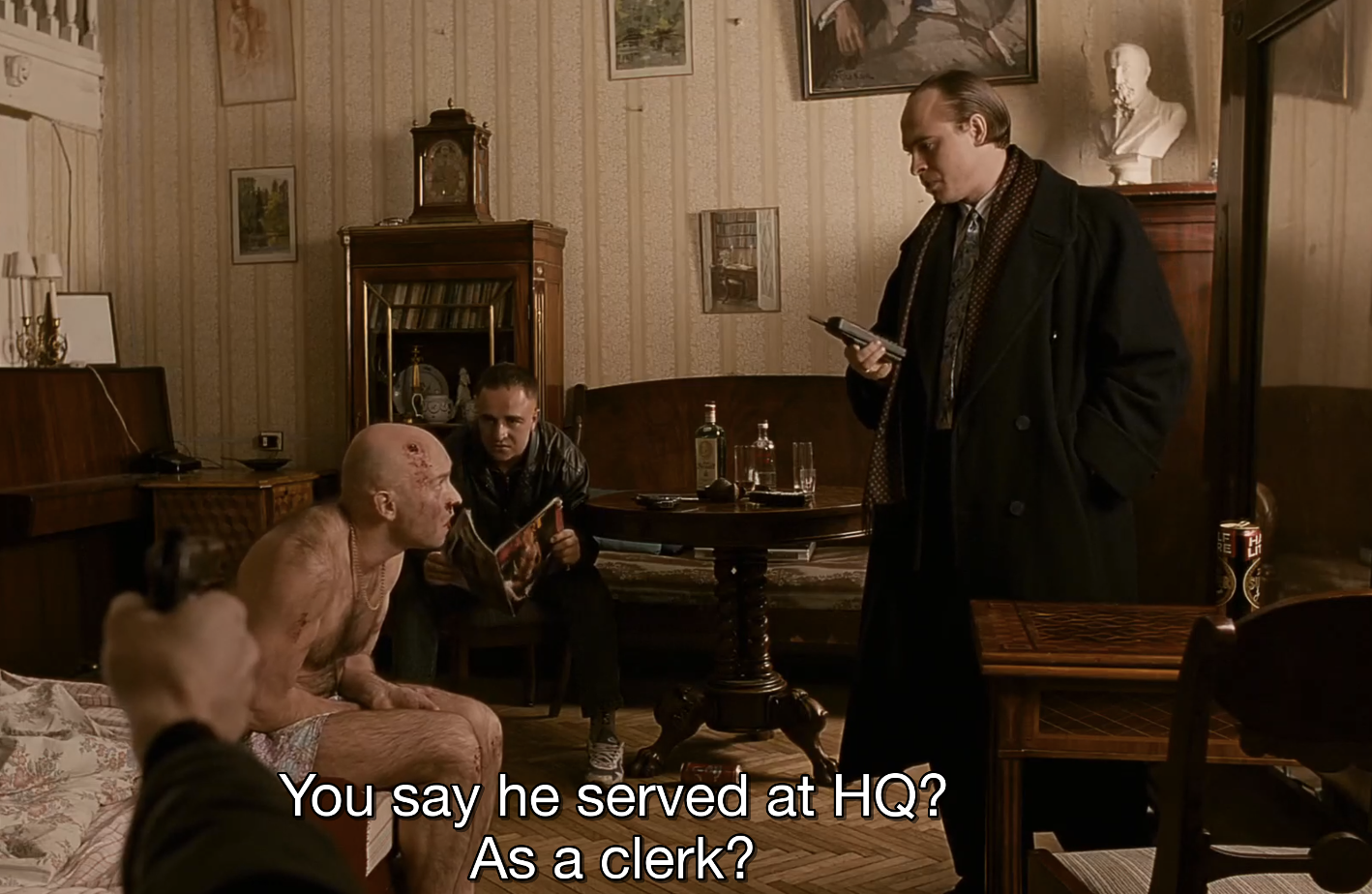Filed Under: Video > Entertainment > Aleksei Balabanov's "Brother" (1997)
Aleksei Balabanov's "Brother" (1997)
[3 items]
A central auteur of the post-Soviet era, filmmaker Aleksei Balabanov (1959-2013) created the ultimate cultural symbol of the so-called “Wild Nineties”: good-guy gangster Danila Bagrov. Balabanov’s two-part crime drama Brother (Brat, 1997) and Brother 2 (Brat 2, 2000) presents the morally ambiguous anti-hero Danila—played by Sergei Bodrov, Jr. (1971-2002)—as both a cautionary aberration of post-Soviet life, and a post-Soviet everyman.
A newly demobilized Chechen War veteran who claims to have spent the entire war “as a clerk in HQ,” Danila nonetheless manages to hold his own in St. Petersburg gang warfare. His willingness to do violence and his tactical abilities set him apart not only from kingpin Kruglyi (Sergei Murzin), but also from his own older brother, Viktor (Viktor Sukhorukov). In the first film in particular, Balabanov relies on folklore and contemporary realia alike to assemble his surprisingly likeable cold-blooded killer. Danila’s ingenuousness recalls Ivan-the-Fool, the simple-minded youngest son of Russian folktales, while his earnest wish to protect the weak likens him to the bogatyr, the heroic warrior figure of Russian epic poems or byliny. On the other hand, Danila’s MacGyver-like ability to craft weapons from random odds and ends, plus his combat skills and dogged pursuit of his victims, call to mind a noir-style vigilante assassin.
Danila’s hybridity and unresolved trauma seem to personify the tumult of Soviet collapse. But in addition to being a fatherless son, a violent criminal, an unreformed racist, and a hopeless romantic, Danila is a devoted fan of the Russian rock band Nautilus Pompilius, whose songs populate the soundtracks of both the first film and its sequel. Brother, especially, uses Danila’s music fandom to negotiate the contradictory duality of his character, which toggles easily between “ruthless murderer” and “goofy provincial.” Balabanov engineers a moral conflict between the author-narrator and his protagonist by contrasting the songs Danila actively hears with those used for cinematic narration of his violent actions.
Both Brother and Brother 2 capitalize on Soviet-era rock, riffing on the cinematic rock hero trope developed by Sergei Solovyov (1944-2021) and Rashid Nugmanov (1954-) for Kino frontman Viktor Tsoi (1962-1990). In contrast to the perestroika-era rock film, however, Balabanov’s works dethrone the rock star onscreen in order to reflect post-Soviet socioeconomic decay. Balabanov positions his films as cultural products made in an acutely post-Soviet context, within which the optimism of perestroika-era reforms gives way to poverty, disillusionment, violence, and crime. The promise of the late-Soviet rock star as an emblem of change is subsumed by the plight of the common man in the aftermath of Soviet collapse. Like Danila, Balabanov suggests, the post-Soviet young man may possess heroic ambitions, but his immediate environment will force him to fight for survival with the only available means: crime and violence.


